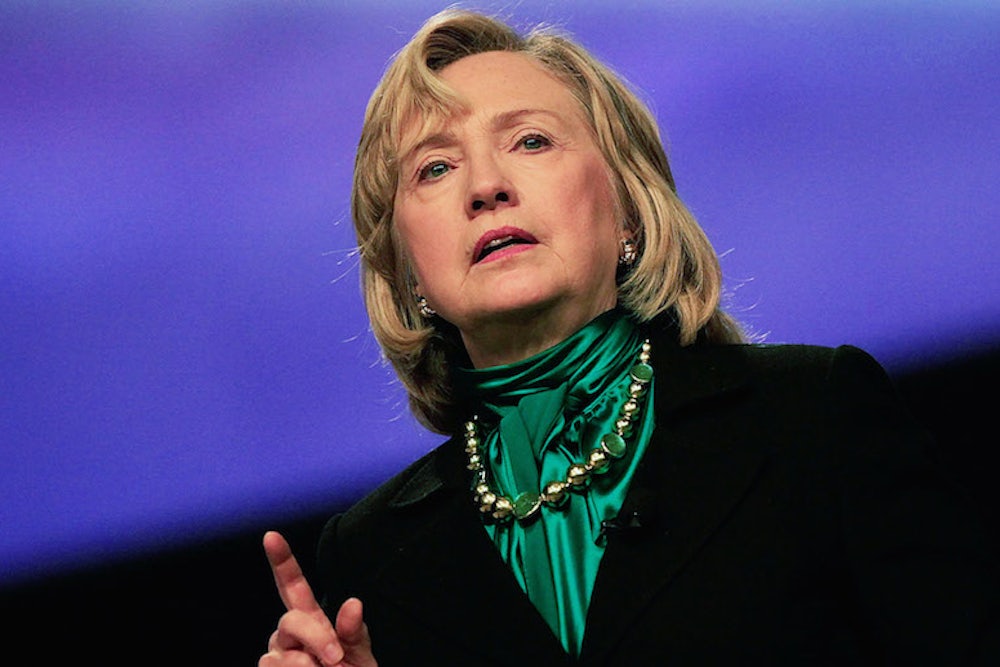As we all anxiously await the Great Clinton Juggernaut of 2016, Maggie Haberman, in Politico, has a truly special piece on Hillary Clinton's role in the 2014 campaign. As Haberman reports:
Clinton said this month that people should be focused on the midterms instead of speculating incessantly about 2016. “We have an election coming up this year. … We ought to be paying attention to that, because that will set the parameters of what can or should be done,” Clinton said.
Hooray for Democrats. Haberman notes the excitement of Party members across the country:
People involved in 2014 races were thrilled by the remark. They took it as a clear signal that Clinton recognizes the distraction that 2016 is for the party when it’s at risk of losing control of the Senate and additional seats in the House.
Oh wait, I skipped almost the entirety of Haberman's piece, including the first few paragraphs. Clinton is actually not going to do much campaigning because she wants to preserve the nonpartisan, somewhat above-the-fray image she has nurtured after becoming President Obama's first Secretary of State. As the piece explains:
Clinton’s approach has strategic logic: The sooner she campaigns, the easier it will be for Republicans to sully her as a partisan. Her popularity as a public figure peaked during her time at State; avoiding the political trenches could help prolong that goodwill. Clinton’s poll numbers over the years have tended to drop the more partisan she has been seen as being.
The great thing about the story is that it essentially takes as a given that Clinton is most concerned with herself, rather than helping her party. Ryan Lizza has already detailed the absurd degree to which Bill Clinton's ego had to be stroked to get him (Clinton, not Lizza) to campaign for Obama. And this piece assumes no one will be surprised by Hillary Clinton's priorities. She may not be campaigning, but she is making money speaking to the Institute of Scrap Recycling Industries convention, for example. (Joe Biden, Martin O'Malley, and other Democratic figures are naturally doing a lot of campaigning.)
The quotes from her allies only make the story more amusing. The New Hampshire Democratic Party chairman, for example, notes with unintentional humor, "'I think there’s a great understanding by folks that she’s continuing her time away from campaigning for others." The chairman of the Party in Pennsylvania, meanwhile, again with unintentional hilarity, writes, "I’ve heard from candidates or their campaigns about how honored they’d be to have the secretary or [Bill Clinton campaign]. … I know selfishly we would all love to see her back on the political trail." I love the use of the world "selfishly" here, as if wanting to win an election to high office is selfish.
A final note. Haberman writes:
Campaign and party committee officials would love Clinton’s help whenever it comes but point out that Bill Clinton has begun campaigning and raising money for a number of Democrats running this year. Since his poll numbers remain high and the two are seen as a single entity, and people view him as tending to the family’s political business, Hillary Clinton gets credit for that.
We'll keep this in mind next time Bill goes off the reservation.
